Although The Kinks were not as bold as the Beatles or as popular as the Rolling Stones or the Who, they were one of the most influential bands of the British Invasion.
Like most bands of their era, the Kinks started out as an R&B and blues band. Within four years, the band became the most enduring English band of all their contemporaries.
History The Ravens
Throughout their long and varied career, the centerpieces of The Kinks have been Ray (born 21 June 1944) and Dave Davies (born 3 February 1947), who were born and raised in Muswell Hill, London. As teenagers, the brothers began playing skiffle and rock and roll.
They soon hired Ray's classmate Peter Quaife to play with them. Like the Davis brothers, Quaife played guitar but later switched to bass.
By the summer of 1963, the band had decided to call themselves The Ravens and hired a new drummer, Mickey Willet.
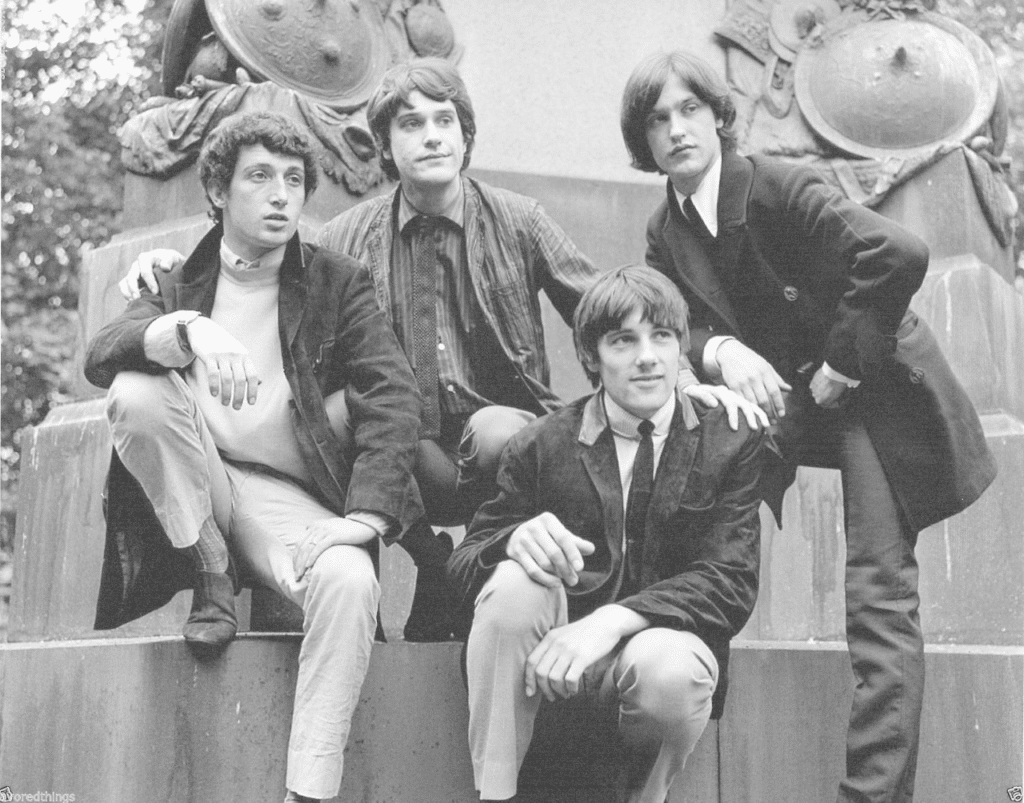
Eventually, their demo tape ended up in the hands of Shel Talmi, an American record producer who had a contract with Pye Records. Talmy helped the band secure a contract with Pye in 1964.
Before signing to the label, the Ravens replaced Willet with drummer Mick Ivory.
The first works kinks
The Ravens recorded their debut single, a cover of Little Richard's "Long Tall Sally" in January 1964.
Before the release of the single, the group changed their name to the Kinks.
"Long Tall Sally" was released in February 1964 and failed to chart, as did their second single "You Still Want Me".
The group's third single "You Really Got Me" was much more successful and dynamic, reaching the Top 1964. "All Day and All of the Night", the band's fourth single, was released in late XNUMX and rose to number two and peaked at number seven in America.
During this time, the band also released two full-length albums and several EPs.
U.S. performance ban
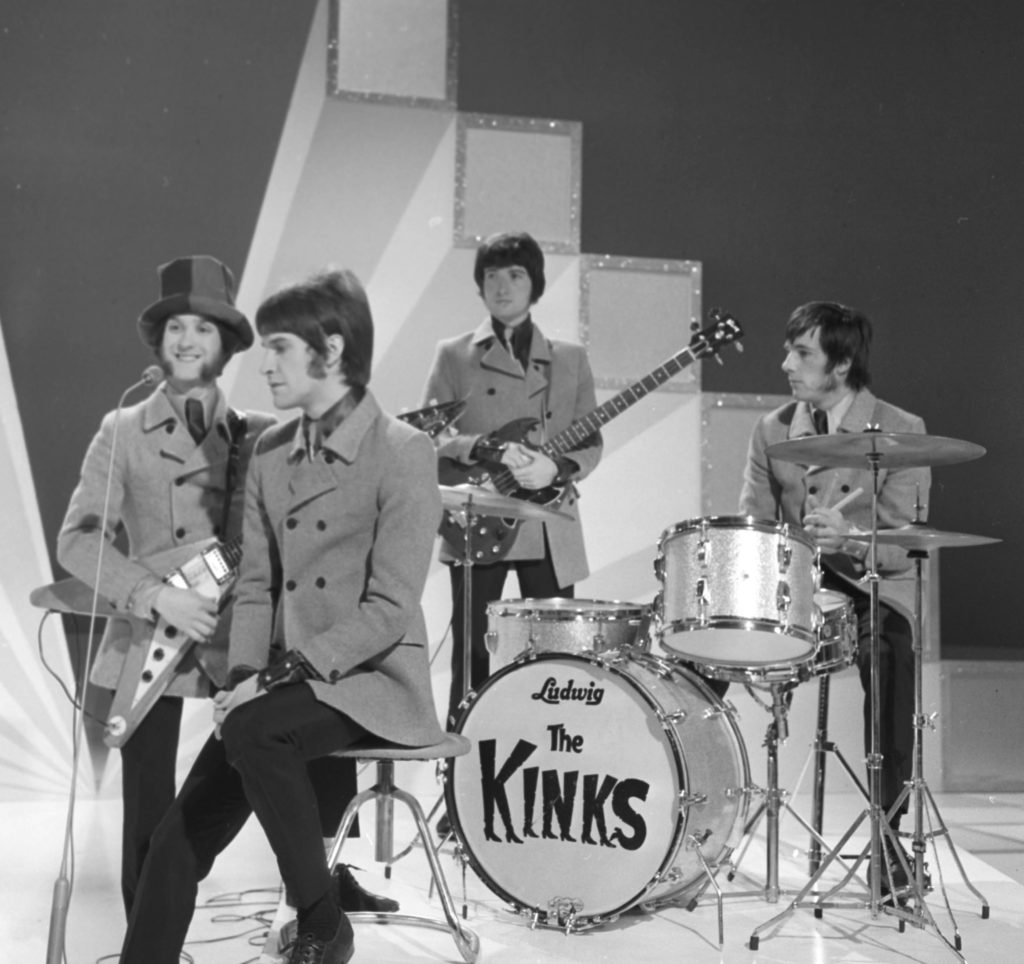
Not only did the band record at a breakneck pace, they also toured constantly, which caused a lot of tension within the band.
At the end of their 1965 American tour in the summer, the US government banned the band from returning to the United States for unknown reasons.
For four years, The Kinks could not enter the United States. This meant that the band was not only denied access to the world's largest music market, but also cut off from some of the social and musical changes of the late 60s.
Consequently, Ray Davies' songwriting became more introspective and nostalgic, relying more on distinctly English musical influences such as music hall, country and English folk than on the rest of his British contemporaries. The next album from The Kinks,
"The Kink Kontroversy" showed Davis' songwriting progress.
«Sunny Afternoon" и "Waterloo Sunset"
The single "Sunny Afternoon" was one of Davis' funniest satirical performances, and the song became the biggest hit of the summer of 1966 in the UK, reaching number one.
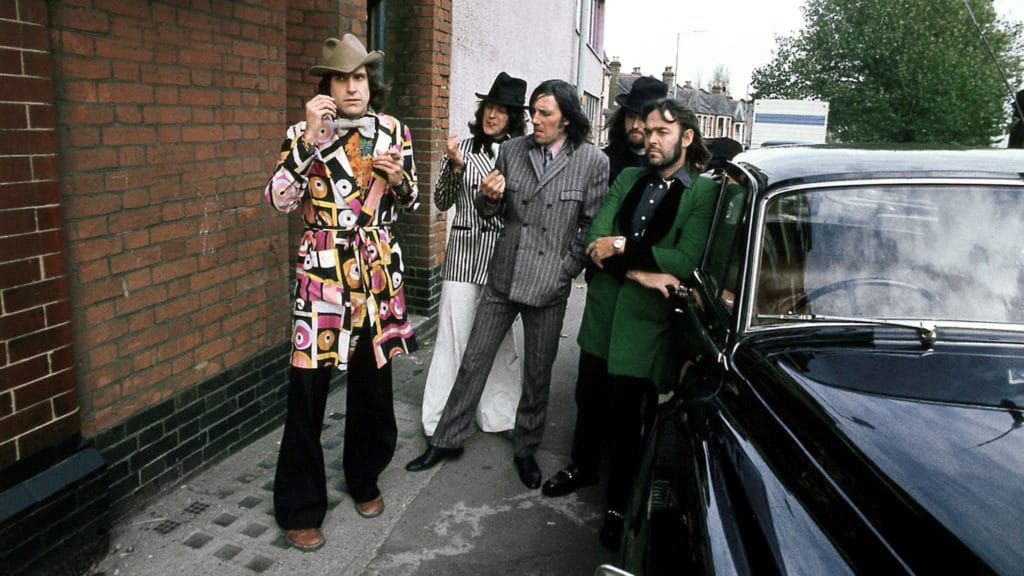
"Sunny Afternoon" was a teaser for the band's big jump, Face to Face, which featured a variety of musical styles.
In May 1967 they returned to the stage with "Waterloo Sunset", a ballad that hit No. 1967 in the UK in the spring of XNUMX.
Popularity decline
Released in the fall of 1967, Something Else by Kinks showed the band's progress since Face to Face.
Despite their musical growth, their singles' charting has declined significantly.
Following the lackluster release of "Something Else by Kinks", the band released a new single, "Autumn Almanac", which became one of the biggest hits in the UK.
Released in the spring of 1968, "Wonderboy" was the band's first single not to hit the top ten since "You Really Got Me".
Somehow the musicians rectified the situation with the release of "Days", but the group's commercial decline was obvious due to the lack of success of their next album.
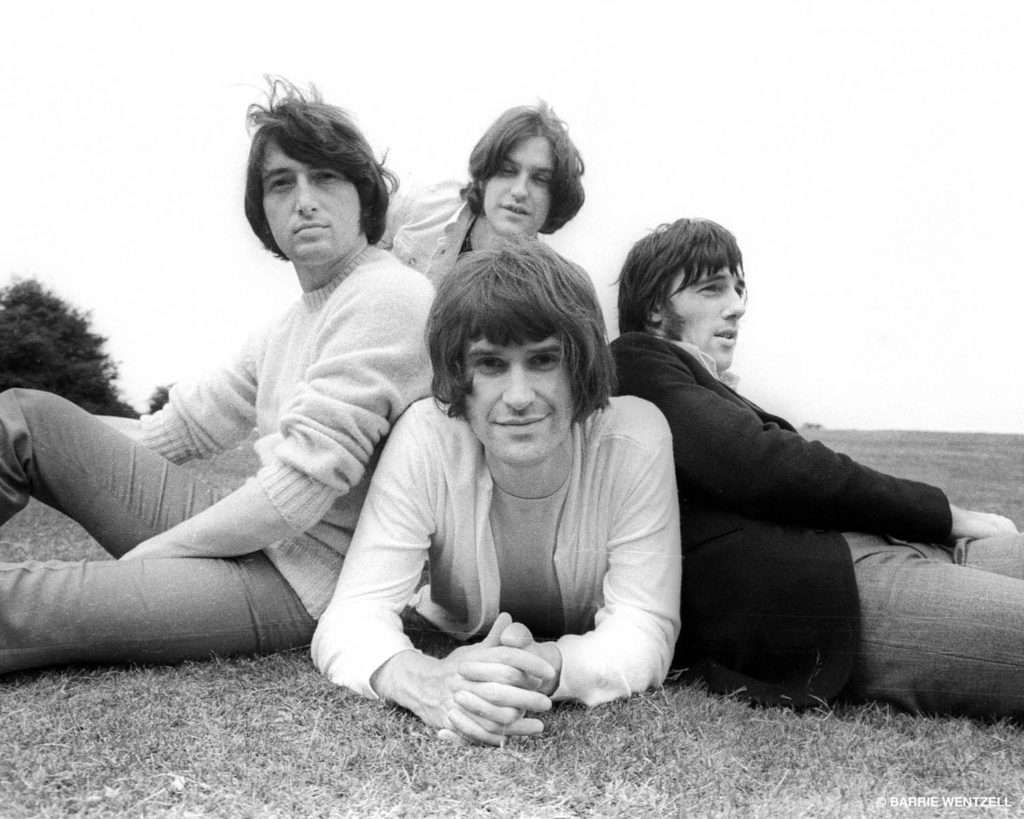
Released in the fall of 1968, The Village Green Preservation Society was the culmination of Ray Davies' nostalgic tendencies. Although the album was unsuccessful, it was well received by critics, especially in the US.
Departure of Peter Kвaife
Peter Kweife soon grew tired of the band's failures and left the band by the end of the year. He was replaced by John Dalton.
In early 1969, the American ban on the Kinks was lifted, leaving the band to tour the US for the first time in four years.
Before starting the tour, the Kinks released the album "Arthur (Or the Decline and Fall of the British Empire)". Like its two predecessors, the album contained distinctly British lyrical and musical themes.
While the musicians were working on a sequel to the album, they decided to expand their line-up to include keyboardist John Gosling.
Gosling's first appearance on a Kinks recording was on the song "Lola". With a stronger rock foundation than their last few singles, "Lola" hit the top ten in the UK and US, released in the fall of 1970.
"Lola Versus the Powerman and Moneygoround, Pt. 1" was their most successful record since the mid-60s in the US and UK.
Contract with RCA
Their contract with Pye/Reprise expired in early 1971, leaving the Kinks with the opportunity to secure a new record deal.
By the end of 1971, the Kinks had secured a five-album deal with RCA Records, earning them a million-dollar advance.
Released in late 1971, Muswell Hillbillies, the band's first RCA album, marked a return to the nostalgia for the Kinks sound of the late '60s, only with more country and music hall influences.
The album was not the commercial bestseller that RCA had hoped for.
A few months after the release of "Muswell Hillbillies", Reprise released a two-album compilation called "The Kink Kronikles", which surpassed their RCA debut album.

Everyone's in Showbiz (1973), a two-LP set consisting of one album of studio tracks and another of live performances, was a disappointment in the UK, although the album was more successful in the US.
Work on rock operas
In 1973, Ray Davis wrote a full-length rock opera titled Preservation.
When the first part of the opera finally appeared at the end of 1973, it was heavily criticized and received a cold reception from the public.
Act 2 appeared in the summer of 1974. The sequel received even worse treatment than its predecessor.
Davis started another musical, Starmaker, for the BBC. The project eventually turned into a soap opera, which was released in the spring of 1975.
Despite poor reviews, the soap opera was more commercially successful than its predecessor.
In 1976, the Kinks recorded Davis' third rock opera, Schoolboys in Disgrace, which sounded far stronger than any of their RCA albums.
Working with Arista Records
In 1976, the Kinks left RCA and signed with Arista Records. At Arista Records they turned themselves into a hard rock band.
Bassist John Dalton left the band near the end of their debut album on Arista. He was replaced by Andy Pyle.
Sleepwalker, the first Kinks album for Arista, became a major hit in the US.
When the band was finishing recording this work, Pyle left the band and was replaced by the returning Dalton.
Misfits, the band's second album on Arista, was also successful in the US. After the UK tour, Dalton left the band again, along with keyboardist John Gosling.

Bassist Jim Rodford and keyboardist Gordon Edwards filled these vacancies.
Soon the band was playing on the biggest stages in the United States. Although punk rockers such as Jam and The Pretenders covered the Kinks in the late 70s, the band became more and more commercially successful.
The success culminated in the heavy rock album Low Budget (1979), which became the most successful in America, peaking at number 11 on the charts.
Their next album, Give the People What They Want, was released in late 1981. The work peaked at number 15 and became the band's gold record.
For most of 1982, the band toured.
In the spring of 1983, "Come Dancing" became the band's biggest American hit since "Tired of Waiting for You" thanks to the video being shown repeatedly on MTV.
In the US the song peaked at number six, in the UK it peaked at number 12. "State of Confusion" followed up with "Come Dancing" and it was another resounding success.
Until the end of 1983, Ray Davis worked on the Waterloo Return film project, this work caused considerable tension between him and his brother.
Instead of breaking up, the Kinks simply changed their line-up, but had to make big sacrifices: Mick Ivory, the band's drummer who played with them for 20 years, was fired and replaced by Bob Henrit.
When Ray finished post-production on Return to Waterloo, he wrote the next Kinks album, Word of Mouth, released in late 1984.
The album was similar in sound to several of the last Kinks records, but the work was a commercial disappointment.
Therefore, a period of decline began for the group. In the future, they will never again release another Top 40 record.
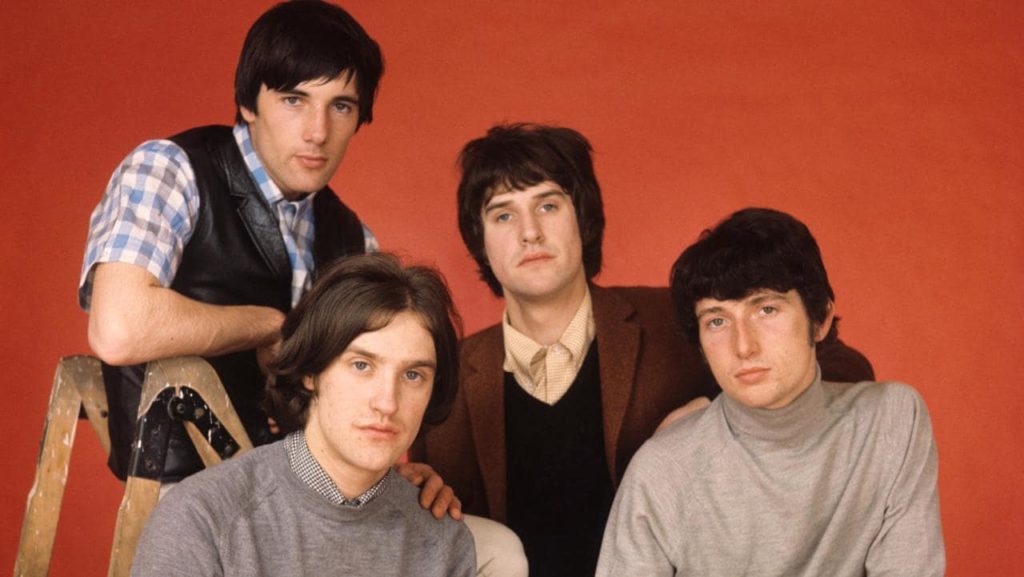
Rock and Roll Hall of Fame
Word of Mouth was the last album they recorded for Arista. In early 1986, the band signed with MCA Records in the US.
Think Visual, their first album for the new label, was released in late 1986. It was an easy and quick success, but there were no singles on the record.
The following year, The Kinks released another live album called "The Road", which, although not for long, but hit the charts.
Two years later, the Kinks released their final studio album for MCA, UK Jive. In 1989 keyboardist Ian Gibbons left the band.
The Kinks were inducted into the Rock and Roll Hall of Fame in 1990, but this did little to revive their career.
In 1991, a selection of their MCA recordings, "Lost & Found" (1986-1989), appeared, signaling the expiration of their contract with the label.
The same year, the band signed with Columbia Records and released an EP titled "Did Ya" which failed to chart.
Their first full-length album for Columbia, Phobia, was released in 1993 to good reviews but poor sales. By this time, only Ray and Dave Davis remained in the group from the original line-up.
In 1994, the group left and the group left Columbia.
Despite the lack of commercial success, the group's publicity began to grow in 1995, as the musicians were named the most influential group.
Thank you Blur and Oasis.
Ray Davis soon reappeared on popular television shows promoting his autobiographical work X-Ray.
Rumors of a band reunion began to surface in the early 2000s, but quickly subsided after Dave Davis suffered a stroke in June 2004.
Dave later made a full recovery, sparking another wave of rumors, but it didn't come true.
Peter Quaife, the band's original bassist, died of kidney failure on June 23, 2010.



